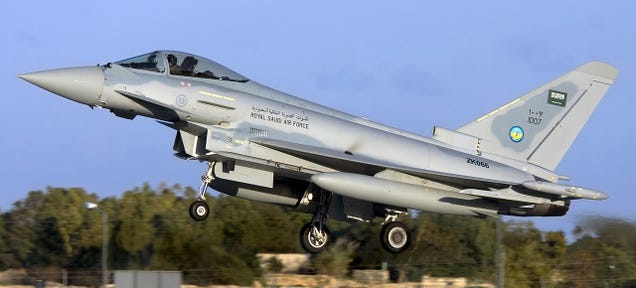Major Shaitan Singh
SENIOR MEMBER

- Joined
- Dec 7, 2010
- Messages
- 3,550
- Reaction score
- 43
- Country
- Location

There is no doubt that the idea of Iran controlling Yemen via their Houthi Rebel proxies is a nightmare for Saudi Arabia. A large part of this nightmare is the possibility that Iran could deny access to the Red Sea and the Persian Gulf simultaneously, cutting off Saudi Arabia's main avenues for energy exports and causing hell for global commerce.
For a complete background on this conflict, including who is fighting who, make sure to check out this prior Foxtrot Alpha feature:
There are reports today of Saudi and other Arab coalition naval vessels sitting off of Yemen's coast in what appears to be the start of a blockade. In addition, Saudi-led strikes on Houthi controlled weapons dumps and possible Scud missile sites caused massive secondary explosions throughout the western part of the country last night. Meanwhile, tens of thousands of troops and an armada of tanks, artillery and armored vehicles are currently sitting on the Saudi-Yemeni border.
But why would Saudi Arabia, and other Gulf States, some located over a thousand of miles away from Yemen, risk intervening in what appears to be a small-time and very messy civil war in a country that has been infested by third party terrorist groups? The answer has largely to do with two strategic geographic choke-points and Iran's ability to control them.
The issue of Iran strangling Sunni-ruled Arab States' oil exports has existed for decades. At any time, Iran can launch throngs of anti-ship and ballistic missiles into and across the Persian Gulf and the Gulf of Oman, along with executing swarming fast boat attacks and deploying hundreds of sea mines. Such an action, which could occur quickly, would in effect shut down the Persian Gulf and choke off 20% of the world's oil supply and about 88 percent of the region's energy exports with a massive impact on the global economy.
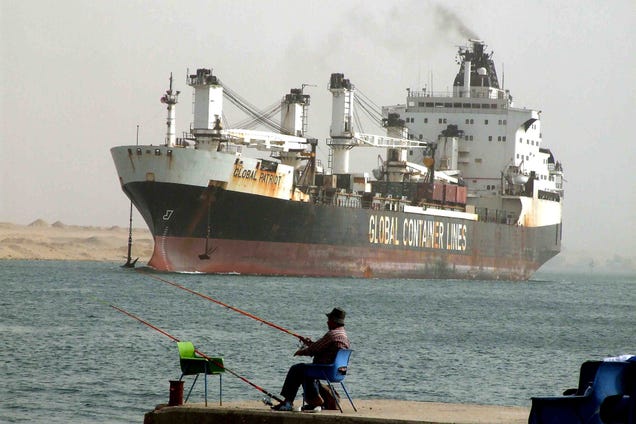
The most vulnerable point in the Persian Gulf when it comes to potential Iranian anti-ship and anti-access operations, is the Strait of Hormuz, a 35 mile wide funnel point that separates the Persian Gulf from the Gulf of Oman. This tight channel, surrounded by complex littorals and shallow waters, gives even the world's most advanced naval vessels transiting through it very little time to respond to an attack and very little room to maneuver evasively. Although Iran is well prepared for the direct attack option, the reality is that they would not have to fire a shot to achieve a similar outcome, instead a blitzkrieg-like mining operation in this area alone could shut down the strategic corridor for weeks or even months.
A wildly similar geographical situation is in play when it comes to Yemen's location on the Gulf of Aden and the southeast portion of the Red Sea. These two key waterways are bisected by a relatively tiny waterway, just 12 miles wide, with Yemen on one side and Djibouti and Eritrea on the other. This relatively tight channel is known as the Mandeb Strait.
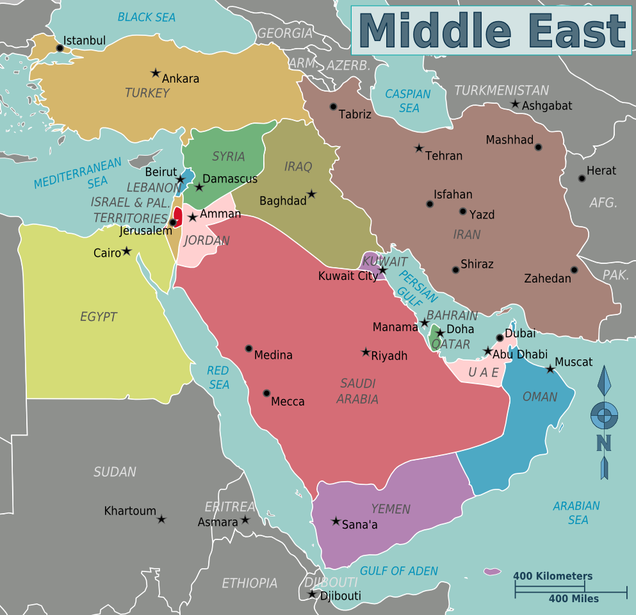
Currently, five percent of the world's entire oil supplies move through the Red Sea, with an estimated 2.1 million barrels a day transiting through the Mandeb Strait alone, and close to 4million barrels a day transiting the Suez Canal. If the southern Red Sea and/or the Gulf of Aden were mined or if vessels were put under threat of airborne, surface or subsurface attack, this nexus between the Eastern World and the Western World would close. Ships would not be able to reach the Suez Canal to enter the Mediterranean and onward into the Atlantic and ships traveling from Europe or the US would not be able to enter the Red Sea and continue on to Asia. Instead they would have to take the long and arduous southern route around the tip of Africa, which is pretty much the mother of all detours.
The route through the Suez Canal has been closed before, the longest stretch being the better part of eight years following the Six Day War in 1967. Still, this was almost 50 years ago, in a time when the world was nowhere nearly as globalized, energy hungry or dependent on "just in time" logistics. Shutting down access between the Mediterranean and the Indian Ocean could be disastrous for the world economy and could even prove deadly for the poorest of nations. To give you some idea of how frequented the route is, in 2012, 17,225 vessels passed through the Suez Canal.
To get an idea of how important the Red Sea route is to world commerce and stability, look at how a world coalition has kept a constant naval presence off the coast of Somalia for over a decade, including assets ranging from Chinese frigates to American Carrier Strike Groups. Keep in mind, that this was done to counter poor and untrained men in old skiffs wielding rusted AK-47s, not to rebuff elements of Iran's elite IRGC or to defending against barrages of anti ship missiles or against surprise attacks by Iranian Kilo Class diesel submarines.
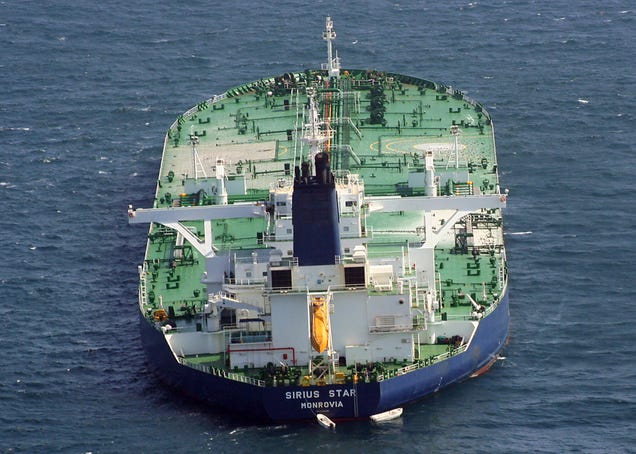
If Houthi Rebels were to consolidate their power and territorial gains in Western Yemen, and had time to stabilize and establish formal rule there, Iran could step in and begin to build up its proxy with similar weapons and tactics as it uses in the Persian Gulf. The impact of Iran controlling the region's two major logistical choke points, and the region's two primary avenues for which oil exports travel, especially those from Saudi Arabia, has wide ranging consequences for players in the region and beyond.
Saudi Arabia in particular has offset the risk of Iranian military actions in the Persian Gulf by building massive pipelines covering the width of their country, carrying oil and natural gas to offloading terminals located on the shores of the Red Sea. The very idea that Iran could cut off access simultaneously to the southern part of the Red Sea as well as well as to the Persian Gulf, leaves The Kingdom in a terrible spot considering almost their entire economy is based on energy exports as is their ability to tightly control their precarious security situation, both external and internal, depends on them.
Currently this east-west Saudi pipeline operates far under capacity as it was built for contingency as much as anything else, with well over half its capacity unused. As a result, if the Strait of Hormuz were shut down, Saudi exports via the Red Sea would skyrocket.
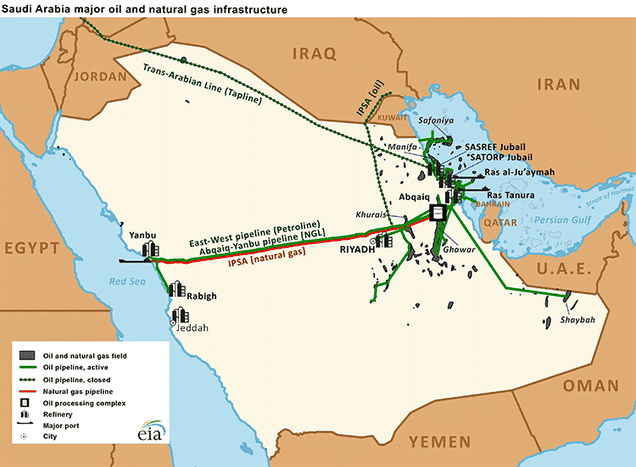
Ironically, Iran was viewed as such a threat to Saudi oil income that Yemen was being eyed as an ideal candidate for a new north-south pipeline, which could convey crucial Saudi energy exports to the Gulf of Aden. The pipeline would have started on the Persian Gulf coast and run all the way down to Mukallah, Yemen, where a large terminal would be built for loading oil and gas onto tankers. Now, this plan, which would have further alleviated the chances of Saudi oil being trapped from export via Iranian action, is almost unthinkable under the current security circumstances in Yemen.
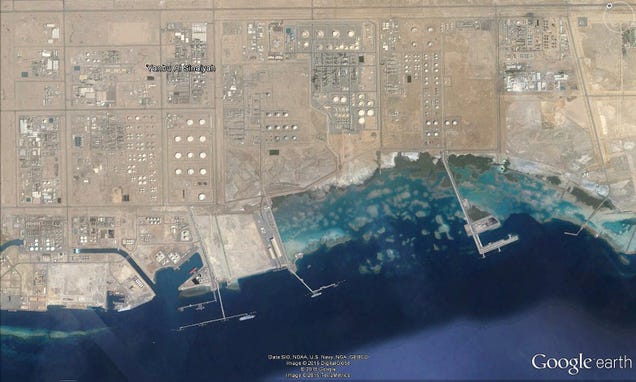
Making things worse, while also offering a clearer way of explaining Saudi Arabia's fast military intervention into Yemen, is that Houthi Rebels, the Shiite force that is opposes the pro-Saudi Sunni establishment in Yemen, already controls territory along the Red Sea and near the Mandeb Strait. This means that even if a stalemate were reached in the fighting between Houthi Rebels and forces loyal to Yemen's semi-deposed Sunni President, Abd Rabbuh Mansur Hadi (not to mention the elements of Al Qaeda and the Islamic State that riddle the country and who are not allied with either group) comes to pass, the Iranian backed Houthi will hold the very territory that could be most damning to Saudi Arabia's existence and world commerce. And this very fact may be the best the explanation as to why Saudi Arabia is so apt to execute a ground invasion into Western Yemen. In their eyes, no matter how bloody and costly such an operation becomes, it is essential to the The Kingdom's stability and long-term economic prospects.


